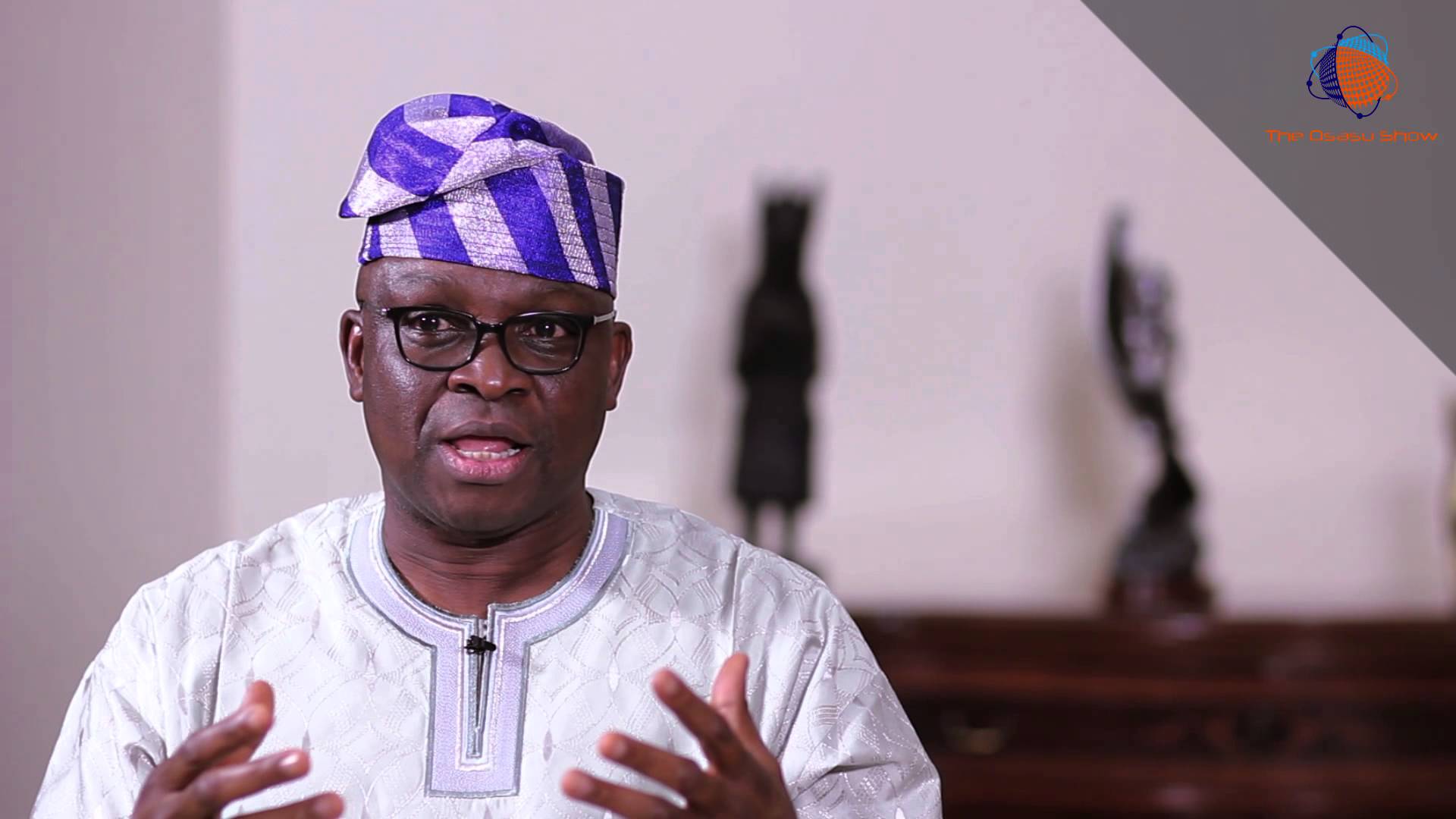- Obanikoro’s Return Planned to Nail Me
The testimony of former Minister of State (Defence) Musiliu Obanikoro in the custody of the Economic and Financial Crimes Commission (EFCC) appears to be rattling Ekiti State Governor Ayo Fayose.
Obanikoro claimed that he gave Fayose N2.3 billion, which came from the former National Security Adviser (NSA), Col. Sambo Dasuki (retd.) in the run-up to the June 21, 2014 governorship election in Ekiti State.
Apparently troubled by Obanikoro’s evidence, Fayose, in a statement made available to reporters yesterday, alleged that the ex-minister’s return from the United States was “arranged and compromised” in a bid to nail him (Fayose).
The governor also described Obanikoro’s surrender to the EFCC as part of “Fayose-Must-Be-Implicated-At-All-Cost” project, urging the All Progressives Congress (APC)-led Federal Government to channel its energy towards providing food for hungry Nigerians.
Dismissing the claim that Obanikoro had confessed to the EFCC on the receipt of funds from Dasuki to sponsor his 2014 governorship campaign, Fayose said he was only reacting just to fulfil all righteousness because Nigerians are more interested in having food on their tables.
He claimed that the APC and the EFCC were conducting a media trial, urging them to halt all salvos being fired at him and wait for him to present his defence.
He said: “We have gone beyond this stage of media trial. EFCC should rather keep its gun powder dry. When we get to the bridge, we will cross it. They said more than this in the 2006 poultry scam blackmail. Despite that, I am the governor today.”
Fayose added: “Those who arranged the dramatic and compromised return of Senator Obanikoro to Nigeria obviously did so in continuation of their project ‘Fayose must be implicated at all cost’ but I am not bothered because my election was legitimately funded.
“However, if this is why they are intimidating judges and the judiciary, it won’t work as far as my own matter is concerned as no one can play God.
“As far as I am concerned, I am busy here in Ekiti attending to the welfare and well-being of my people. I won’t be distracted.”
Fayose challenged the EFCC to also investigate the funding of APC elections, expressing outrage that “financial assistance from Nigerians is now criminalised”.
He said: “Since we are now in the era in which financial assistance from Nigerians to fund elections is being criminalised, the international community, especially those funding EFCC, must insist that the commission probes the funding of APC elections before further funds are released to the commission.
Also yesterday, Fayose dispelled the rumour that he had shut down the Ado-Ekiti branch of Access Bank Plc following last Monday’s attempt by agents of the EFCC to arrest Mrs Precious Chikwendu Fani-Kayode, the wife of former Minister of Aviation Femi Fani-Kayode, in the bank premises.
In a statement in Ado-Ekiti by his Chief Press Secretary, Idowu Adelusi, Fayose said it had nothing against the bank and there was no reason whatsoever to shut down the financial institution.
He said: “The attention of the state government has been drawn to rumours making the round, especially on social media, that Ekiti State Government has shut downý a branch of Access Bank in Ado-Ekiti, the state capital.
“This is definitely coming from the warped minds of opposition elements, whose mouths have been locked by the sterling performance of Fayose and the unprecedented support he is enjoying from the people of the state.
“For the sake of clarity, Ekiti State Government has no axe to grind with the management of Access Bank. Also, the state government does not license banks and can’t withdraw same.
“We enjoin the good people of Ekiti State and Nigerians in general to disregard such unfounded rumours.
“They should not let themselves be dragged to the level of the unintelligent like the opposition people have shown by embarking on this type of insinuation they probably brought from the pit of hell.”


 Billionaire Watch2 weeks ago
Billionaire Watch2 weeks ago
 Startups4 weeks ago
Startups4 weeks ago
 News4 weeks ago
News4 weeks ago
 News4 weeks ago
News4 weeks ago
 Bitcoin4 weeks ago
Bitcoin4 weeks ago
 Naira4 weeks ago
Naira4 weeks ago
 Forex3 weeks ago
Forex3 weeks ago
 Treasury Bills4 weeks ago
Treasury Bills4 weeks ago
























